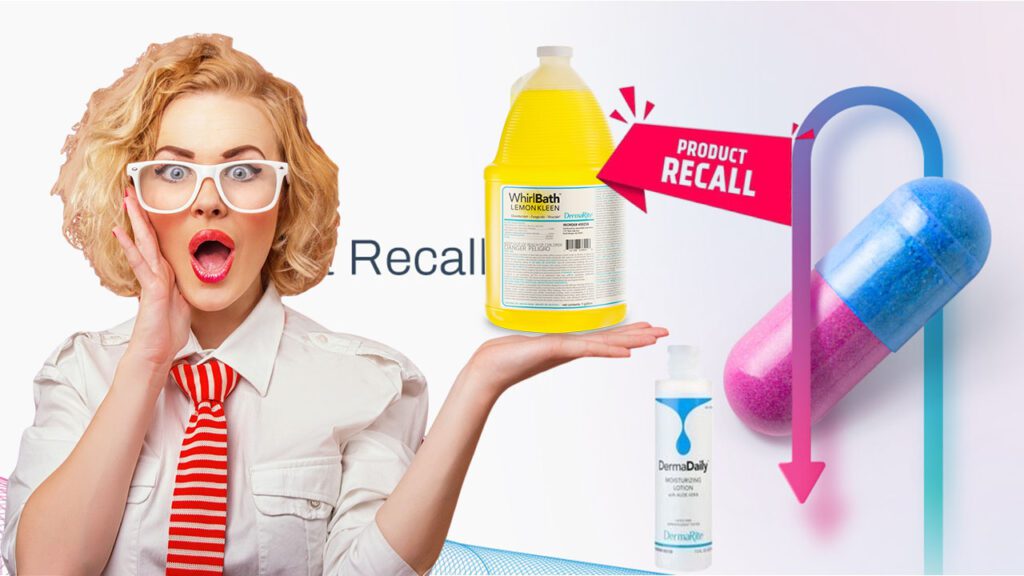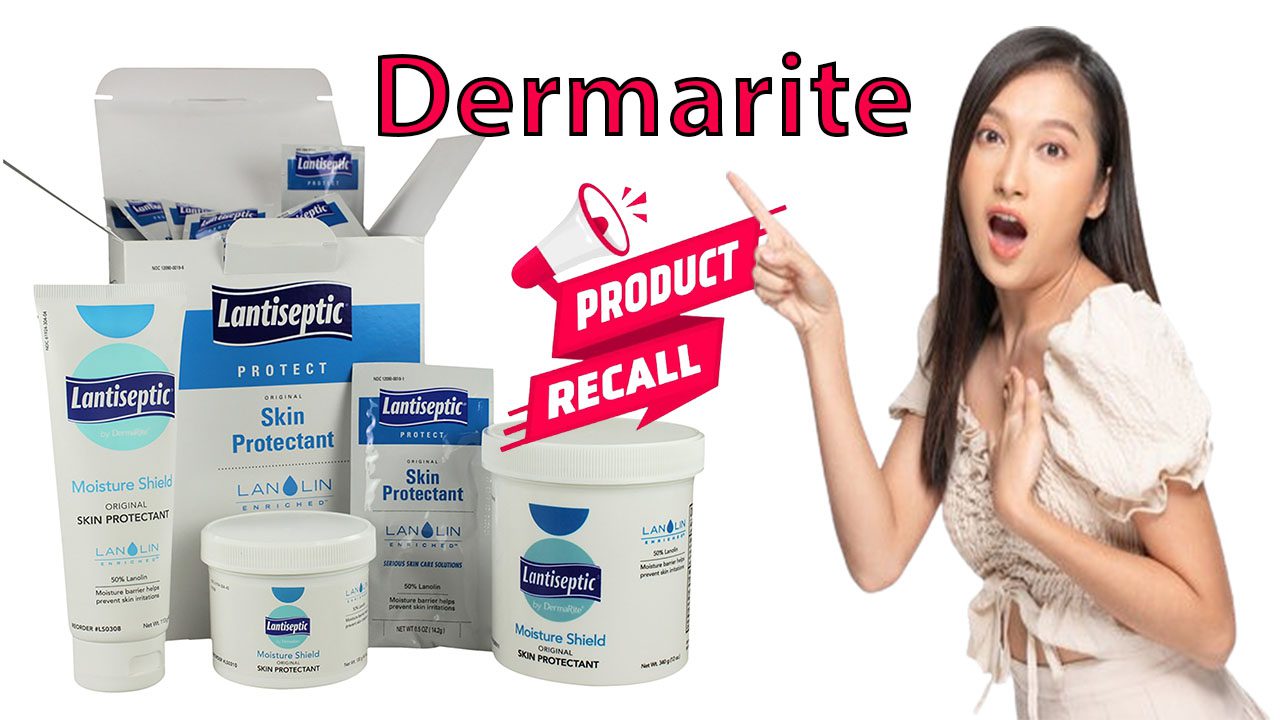Dermarite Recall Products Update | Full List + Safety Info
If you’ve heard about dermarite recall products, you’re not alone. A major recall has swept across the U.S. recently, involving dozens of skincare, hand hygiene, and topical products from DermaRite Industries. The reason? Potential contamination with Burkholderia cepacia complex, a bacteria especially dangerous for people with weakened immune systems.
In this article, we’ll dig into what the dermarite recall products are, which lots are affected, what risks are involved, and what steps you should take if you own any of the recalled items. Think of this as your no-nonsense guide to staying safe without panicking (but definitely double checking your shelves).
Why Did DermaRite Issue a Recall?
- In early August 2025, DermaRite Industries, LLC issued a voluntary recall of several products following discovery of Burkholderia cepacia complex (Bcc) contamination.
- The bacterial species is commonly present in soil and water but can be harmful if introduced to broken skin or used by people with impaired immune responses.
Timeline of Key Actions
- July 16, 2025 – Initial recall announcement covering certain brands.
- August 8, 2025 – Expansion to include more products (DermaKleen, Dermasarra, KleenFoam, PeriGiene, etc.).
- August 27, 2025 – Further expansion: dozens more products including lotions, sanitizers, body washes, deodorants added. All items with lots expiring on or before August 2027 included.
Where Were the Products Sold?
- Across the continental U.S. and Puerto Rico.
- Retailers include Amazon, Sam’s Club, possibly Walmart and healthcare facilities.
Understanding Burkholderia cepacia Complex
- For healthy people: minor risk. If you have cuts, cracked or chafed skin, using contaminated products may cause local infection.
- For immunocompromised individuals (e.g. those on chemotherapy, with lung disease, or weak immune systems): higher risk of systemic infection or sepsis.
- Bcc is also known for being drug-resistant under some conditions. Treating infections can thus be harder.
Symptoms to Watch For
- Redness, irritation, or rash at site of product use
- Swelling or pain
- Discharge, unusual odor, or worsening skin condition
- Fever, chills, fatigue if infection spreads (especially in vulnerable people)
Full List of Recalled Items
This table includes many of the key dermarite recall products, their former use, and what to check (lot expiry etc.). Always cross-check with the FDA or company official list in case of updates.
| Product Name | Type (Soap, Lotion, Cleanser, etc.) | What to Check (Lot/Expiration) |
|---|---|---|
| DermaKleen | Antiseptic lotion soap with Vitamin E | All lots expiring ≤ August 2027 |
| KleenFoam | Antimicrobial foam soap with Aloe Vera | Same as above |
| DermaSarra | External analgesic lotion | Same cutoff |
| PeriGiene | Antiseptic cleanser for perineal use | Same cutoff |
| GelRite | Instant gel hand sanitizer | Same cutoff |
| DermaFungal | Antifungal cream (OTC) | Same cutoff |
| UltraSure | Deodorant / Anti-perspirant | Same cutoff |
| Renew Full-Body Wash & Shampoo | Bodywash/shampoo, all over cleanser | Same cutoff |
| TotalBath / TotalFoam | Bodywash/shampoo or foam | Same cutoff |
| LubriSilk | Lotion for rough, dry skin | Same cutoff |
Note: The actual product list is long (30+ items), including various creams, washes, lotions, etc. Always refer to the official FDA table or DermaRite’s website for lot numbers and images.
What Should You Do If You Bought One?
- Look at the brand name (DermaRite), item name (DermaKleen, KleenFoam, etc.), batch/lot number if available.
- Check expiration date: if on or before August 2027, then it’s part of the recall.
Stop Using & Dispose / Return
- Don’t keep using suspected products. Even if you feel fine, risk exists.
- Safely dispose of them or follow return/refund instructions from retailer or manufacturer. DermaRite has asked distributors to destroy affected inventory.
- GLP-1 Drugs: Cost, Benefits & Side Effects in the USA | 2025 Guide
Contact Healthcare If Symptoms Appear
- If you had contact with a recalled product and notice skin problems (rash, infection), or systemic symptoms (fever, chills, etc.), see a healthcare provider.
- Especially important for people with weakened immune systems.
Report & Stay Informed
- You can report adverse events to the FDA’s MedWatch program.
- Monitoring for updates on the recall (products or lot expansions) via FDA website or DermaRite’s official press releases.
Who’s Most at Risk?
- Immunocompromised individuals (e.g. people undergoing cancer treatment, people with HIV/AIDS, organ transplant recipients)
- People with chronic lung disease or cystic fibrosis
- Those with open wounds, cracked or very dry skin
- Healthcare workers, caregivers who have frequent exposure
If you fall into one of those categories, double check any DermaRite products you use, and err on the side of caution.
How DermaRite & FDA Are Handling It
- DermaRite has issued voluntary recalls, expanded them as more information came in.
- They have notified distributors and customers to destroy inventory.
- Providing contact info (Sedgwick, email & phone lines) for consumer concerns.
Regulatory Oversight
- FDA is publishing recall notices, high-authority alerts.
- CDC involved / risks highlighted via media and public health sources. (Symptoms, sepsis risk)
Case Studies & Media Reports
- People.com and Health.com have shared stories where the recall was expanded to include more products in late August.
- As of mid-September 2025, there have been no confirmed reports of adverse effects, according to FDA and DermaRite statements. That said, the risk remains particularly for those with weaker immune defenses.
What Consumers Are Saying
- Some users reported tossing out lotions, soaps, sanitizers when they realized their items matched recall info.
- Others are calling retailers to check if the specific lots were part of the recall before buying.
Tips to Protect Yourself in Future
- Always check lot numbers / expiration dates, especially for topical skincare and hygiene products.
- Stick with trusted brands that have transparent safety policies.
- If you find a recall, share info with family members who may use the same products.
- Store products properly — moisture, heat, and improper storage can exacerbate contamination risks.

10 Related Questions & Answers –
1. What are the full list of dermarite recall products names and lot numbers?
The full list of dermarite recall products includes DermaKleen lotion soap, KleenFoam antimicrobial foam soap, PeriGiene perineal cleanser, GelRite hand sanitizer, DermaSarra analgesic lotion, DermaFungal cream, Renew full body wash, LubriSilk lotion, UltraSure deodorant, and more. All lots expiring on or before August 2027 have been recalled, so consumers must check expiration dates to confirm.
2. Is it safe to use DermaRite soap after the recall notice?
No, it is not safe to use DermaRite soap that is part of the recall. If the soap matches the listed products and expiration dates, discontinue use immediately, even if you have not experienced symptoms.
3. What symptoms do you get from Burkholderia cepacia exposure?
Symptoms include redness, rash, skin irritation, swelling, discharge, and in severe cases fever, chills, or sepsis, particularly in people with weakened immune systems.
4. How do I return or get refund for recalled DermaRite products?
Consumers can contact DermaRite’s recall helpline or the retailer where they purchased the product. Instructions are provided through FDA notices and DermaRite’s official site.
5. Are DermaRite wound care products included in the recall?
The main recall covers soaps, lotions, sanitizers, and cleansers, but certain wound care items may be included depending on expiration dates. Always check the FDA recall page for confirmation.
6. How dangerous is Burkholderia cepacia for healthy individuals?
For healthy individuals, the bacteria usually causes mild or no symptoms, but it can still infect broken skin. The highest danger is for immunocompromised people.
7. What retailers sold the recalled DermaRite products?
Products were distributed nationwide through Amazon, Sam’s Club, pharmacies, and healthcare facilities.
8. How can I verify if my lot number is recalled?
Check the product’s expiration date; if it is on or before August 2027, it is part of the recall. Compare lot details on FDA or DermaRite’s official recall list.
9. What precautions should immunocompromised people take with skin-care recalls?
They should stop using all recalled items immediately, monitor for symptoms, and consult healthcare providers promptly for any sign of infection.
10. How does FDA categorize and issue product recalls like this?
The FDA classifies recalls into Class I, II, or III based on risk. For DermaRite, the recall was voluntary but monitored by FDA to protect public safety, with regular updates provided online.
Conclusion
The recall of dermarite recall products highlights the importance of consumer awareness and quick action when safety issues arise. While the recall was voluntary, it shows the company’s responsibility in removing potentially harmful items from the market. For everyday users, the key step is to carefully check labels, expiration dates, and lot numbers to ensure none of the affected products remain in their homes. Even if no symptoms are present, discontinued use is the safest route, especially for immunocompromised individuals.
Burkholderia cepacia exposure poses a greater threat to people with weakened immune systems, yet the recall reminds all consumers that contamination risks should never be ignored. Staying informed through FDA updates and company announcements helps prevent unnecessary health risks. Ultimately, this recall serves as a reminder that vigilance and responsible product use are essential parts of maintaining personal and family safety.













